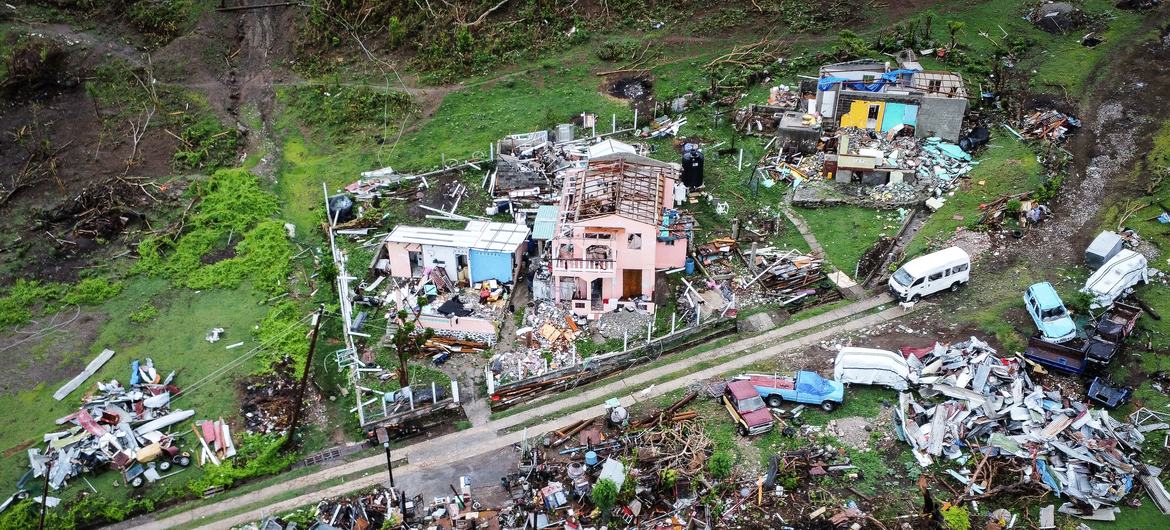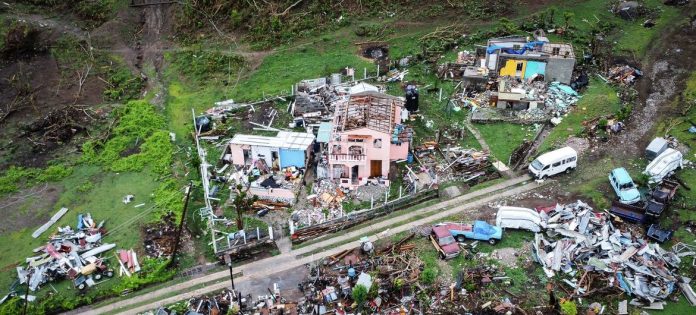This year saw 18 named storms, 11 hurricanes, and five major hurricanes – classified as Category 3 or higher – marking the ninth consecutive above-average season for the Atlantic basin.
“Year after year, the climate crisis continues to break new records, resulting in more extreme weather events, including rapidly intensifying tropical cyclones, intense rainfall and flooding,” said Celeste Saulo, Secretary-General of the UN World Meteorological Organization (WMO).
Among them was Hurricane Beryl, which made history as the earliest Category 5 hurricane ever recorded in the Atlantic basin. Striking in July, Beryl left widespread devastation across the Caribbean.
While the storm caused extensive damage to homes and infrastructure, its impact on human life was mitigated by advances in early warning systems.
“Despite its ferocity, the hurricane resulted in fewer deaths compared to previous ones. This was thanks to advances in strengthening their early warning systems,” Ms. Saulo said.
A season of extremes
After the devastation unleashed by Hurricane Beryl in July, activity slowed in August due to atmospheric conditions over Western Africa impeding storm development.
However, storm frequency and intensity surged in early September, with seven hurricanes forming after 25 September – a record for late-season activity.
Hurricane Helene made landfall in late September as a Category 4 storm on Florida’s Gulf Coast, causing catastrophic flooding in the southern Appalachians, widespread wind damage across the eastern United States and storm surge flooding along Florida’s coast.
With over 150 direct fatalities, Helene became the deadliest hurricane to strike the country since Hurricane Katrina in 2005.
In October, Hurricane Milton made landfall near Siesta Key, Florida, as a Category 3 storm. It unleashed 46 tornadoes, torrential rainfall and severe flooding.

Aerial view of houses destroyed by Hurricane Beryl as it barreled through Union Island in St. Vincent and the Grenadines.
Rising threats amid climate change
The 2024 hurricane season underscored the alarming trend of increasingly severe storms fueled by the climate crisis.
Rising global temperatures are intensifying tropical cyclones, leading to rapid storm intensification, heavier rainfall and more frequent flooding, according to the WMO.
While fatalities from tropical cyclones have decreased dramatically – from over 350,000 in the 1970s to fewer than 20,000 in the 2010s – economic losses have risen sharply. In 2024 alone, four US hurricanes caused damage exceeding $1 billion each.
Small island developing states in the Caribbean remain particularly vulnerable, with disproportionate impacts highlighting the need to scale up initiatives like the Early Warnings for All campaign, aimed at building resilience.

